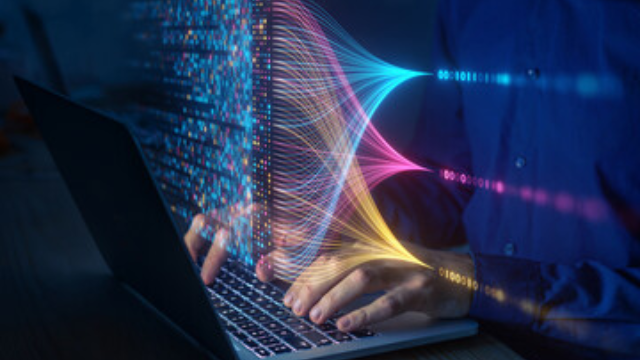AI is disrupting everything. But why? How is it changing industries, jobs, and our economy? And what about the ethics of it all? You’re about to delve into these pressing questions. We’ll pull apart the hype, explore the nitty-gritty, and imagine what’s on the horizon. So, buckle up. You’re on a journey to uncover the truth about AI’s disruptive potential.
Understanding the Basics of AI
In order to grasp why AI is so disruptive, you’ll first need to understand the basics of AI. The AI Fundamentals are rooted in computer science, mathematics, and cognitive psychology. It’s all about creating machines that can mimic human intelligence, whether it’s learning from experience, understanding complex concepts, or recognizing patterns. But it’s not just about replication; it’s about enhancement and efficiency.
The AI Evolution has been an exciting journey. In the 1950s, AI was about simple rule-based systems. In the 1980s, it shifted towards machine learning, allowing computers to learn and improve from experience. Now, we’re in the era of deep learning and neural networks, where AI can not only learn but also make decisions in a way that’s eerily similar to the human brain.
AI’s Role in Transforming Industries
Now that you’ve grasped why AI is so disruptive, let’s delve into how it’s transforming industries across the globe. AI is reshaping the way we live and work, pushing the boundaries of human potential and transforming industries in ways we could only imagine a few years ago.
Take AI in healthcare, for example. AI algorithms are now capable of diagnosing diseases, predicting patient outcomes, and personalizing treatment plans in real-time. It’s like having a superhuman doctor who never sleeps.
Then there’s the autonomous vehicles revolution. AI-powered self-driving cars promise to make our roads safer and our commutes more enjoyable. Imagine a world where traffic jams and road accidents are a thing of the past.
- AI is giving us superhuman doctors who can diagnose diseases and predict patient outcomes in real-time.
- AI is driving a revolution in transportation, promising safer roads and more enjoyable commutes.
- AI is transforming industries, pushing the boundaries of what’s possible and reshaping our world in ways we could only dream of a few years ago.
It’s no wonder AI is causing such a stir. It’s not just about the technology – it’s about the profound impact it’s having on our lives and our world.
AI and the Future of Jobs
Considering the future of jobs, you’re likely wondering how AI is transforming the employment landscape, aren’t you? Job automation fears are not unfounded. They stem from the rapid advancements in AI, which are automating routine tasks, thereby disrupting traditional job roles. But it’s not all doom and gloom.
AI is also creating new jobs that didn’t exist before. As AI evolves, the need for AI specialists and data scientists is skyrocketing. Innovations in AI are fostering job growth in sectors like healthcare, where AI can analyze large datasets to diagnose diseases, and in education, where it can personalize learning experiences.
AI’s influence on education is profound. There’s a shift towards teaching skills that AI can’t replicate – creativity, critical thinking, emotional intelligence. Educational institutions are adapting their curriculums to prepare students for an AI-driven world. They’re focusing on ‘human skills’ that AI can’t automate, such as leadership, empathy, and interpersonal skills.
The future of jobs with AI is a blend of opportunities and challenges. While AI might cause job displacement, it’s also paving the way for a new era of job creation and sparking an evolution in education. The key is to adapt, upskill, and embrace the change.
The Economic Impact of AI
You’re probably wondering about the economic impact of AI, aren’t you? AI’s influence is far-reaching, extending beyond the realms of technology and innovation, and making a significant mark on the economy.
AI-driven inflation is one potential economic effect. AI can automate jobs, leading to increased productivity and lower costs. However, this could also result in inflation if the supply of goods and services surpasses demand.
AI’s trade influence is another critical aspect. By automating and optimizing trade processes, AI can reshape global trade patterns, impacting economies worldwide.
Consider these points:
- AI can create economic disparities: While it can generate wealth, it can also widen the gap between the rich and the poor.
- AI can disrupt job markets: Automation could lead to job displacement, causing social unrest.
- AI can challenge economic structures: As AI changes the way we work and trade, it could alter economic systems, forcing us to adapt.
These potential impacts of AI can evoke mixed emotions. While there’s excitement for the possibilities, there’s also concern about the challenges. But, understanding the economic implications of AI can help us anticipate and navigate these changes.
Ethical Implications of AI Disruption
While pondering the economic implications of AI, it’s equally crucial to delve into the ethical challenges that this disruption presents. AI Bias and Privacy Invasion are two of the most prominent issues you need to be aware of.
AI Bias is an ethical minefield. It’s the phenomenon where AI systems, shaped by human input, exhibit the same prejudices as their creators. You’ll see it in situations, for example, where a hiring algorithm filters out candidates based on gender or ethnicity. This isn’t just unethical; it’s also illegal in many jurisdictions. It’s a challenge that demands our attention as we strive for a fair and inclusive AI-driven society.
Now, consider Privacy Invasion. AI’s ability to collect, analyze, and use personal data is unprecedented. It’s transforming industries, but at what cost? Your private data could be harvested, sold, or exploited without your consent. It’s a serious violation of your rights. The need for robust data privacy regulations and safeguards has never been more urgent.



